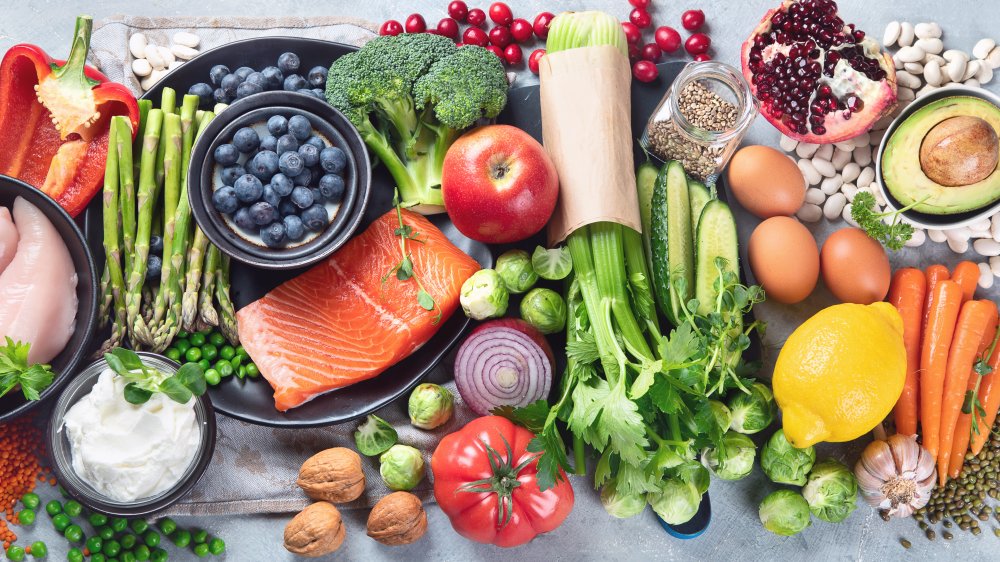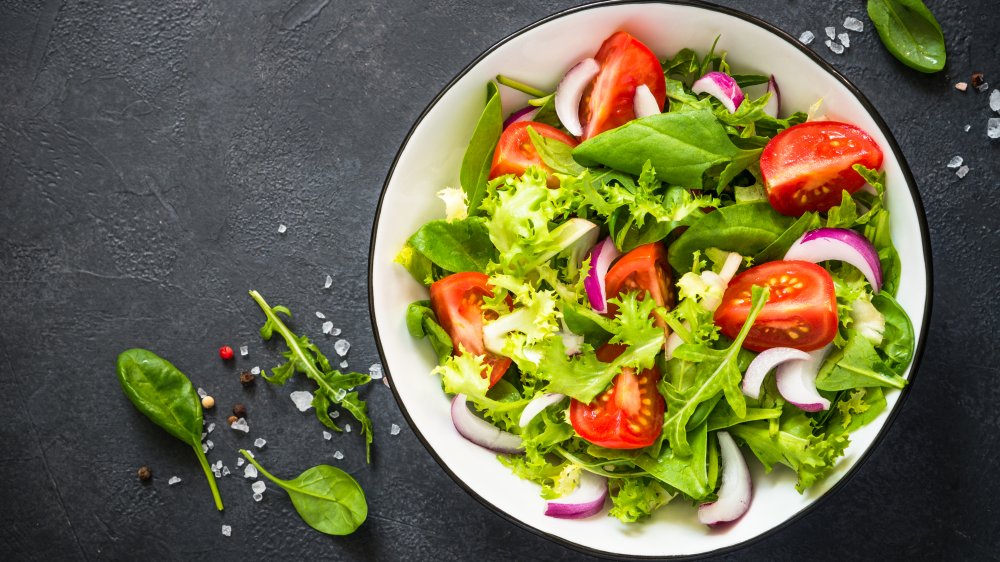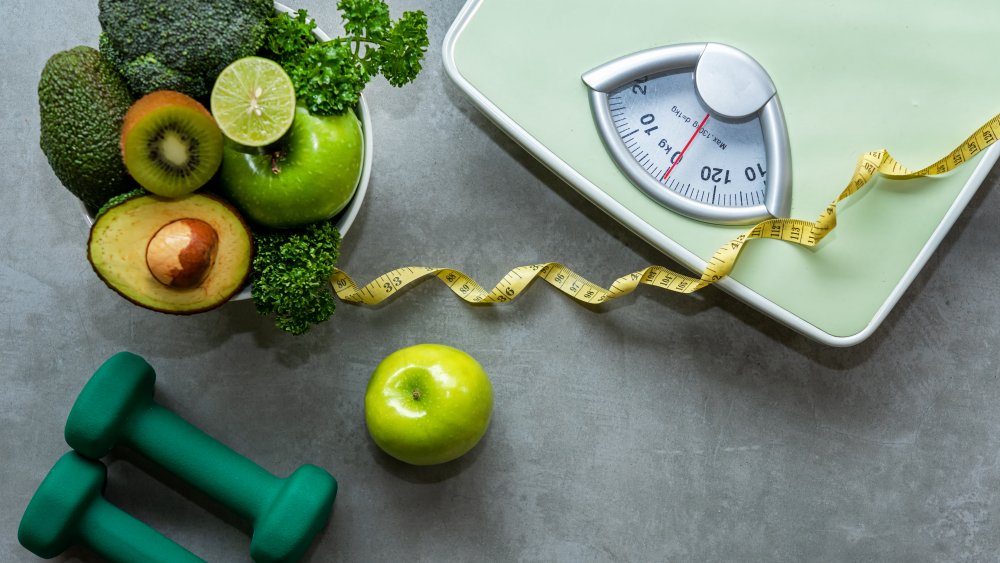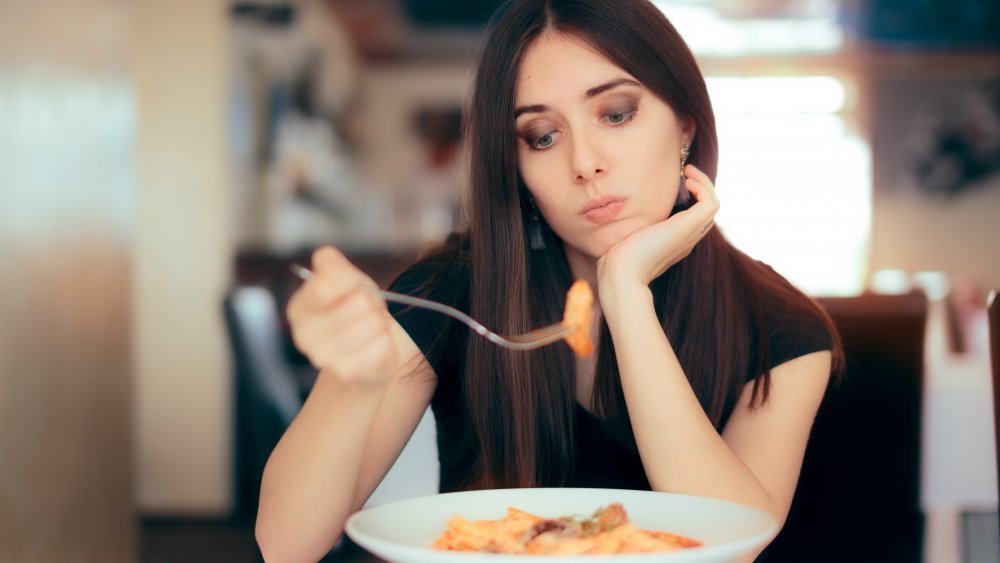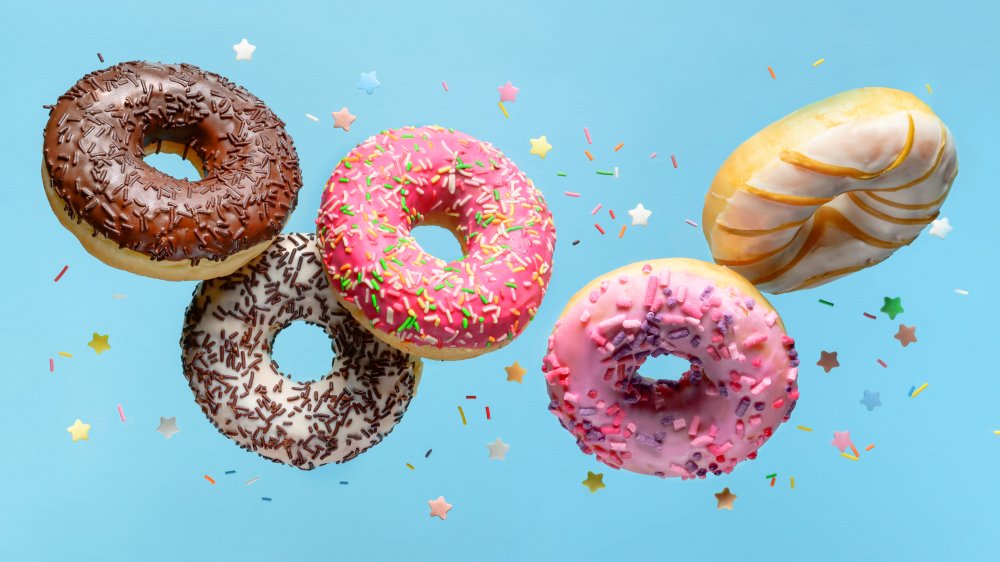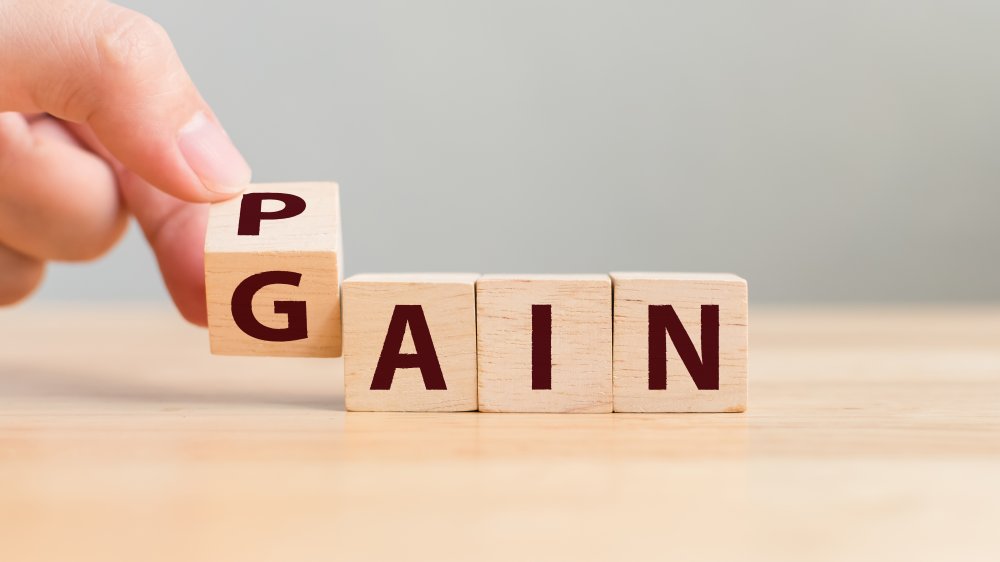Myths About Intuitive Eating You Can Stop Believing
We may receive a commission on purchases made from links.
Intuitive eating is growing more popular by the minute. In 2019, bestselling author Jessica Knoll wrote an op-ed in The New York Times that chronicled her own shift away from diets and food restriction and towards intuitive eating. She detailed how frustrating it is to see so many successful women putting so much focus on their weight and their food choices, instead of talking about or celebrating other more important things.
"Food is a part of my life — a fun part — but it no longer tastes irresistible, the way it did when I told myself I couldn't have it," Knoll wrote, revealing the breezy way she thinks about food now that she has adopted intuitive eating. That alone sounds like a reason to give intuitive eating a try.
Despite being new to the mainstream, intuitive eating has actually been around for a while. Dietitians Evelyn Tribole and Elyse Resch published the book, Intuitive Eating, in 1995. Since then, many nutrition experts have praised the approach. However, there are plenty of myths about intuitive eating floating around. Here's what the experts and evidence have to say about this way of eating.
Myth: Intuitive eating is just another diet
Let's face it, there are hundreds of programs out there that claim not to be diets, but are, in fact, the epitome of diets. A "lifestyle change" that forbids you from eating outside of a certain time window? It's a diet. A "30-day reset" that makes entire food groups off-limits? It's a diet! However, intuitive eating is actually different. It's really, truly not a diet. Why? Because there are no rules around what you can and cannot eat.
Dietitian Evelyn Tribole, co-author of the original Intuitive Eating book, wrote on the Intuitive Eating website, "Intuitive Eating is not a diet or food plan. Period. There is no pass or fail, therefore there is no 'blowing it', rather it's a journey of self-discovery and connection to the needs of your mind and body." She continued, writing, "There is nothing to count: this includes no counting of calories, carbs, points, or macros." Tribole went on to explain that intuitive eating is not about weight loss. As it happens, part of intuitive eating is letting go of weight loss as a goal and quitting the scale.
Myth: People who want to lose weight should try a diet instead of intuitive eating
Given how infatuated our culture is with thinness, it's natural to think that maybe intuitive eating is just another way to try to lose weight. However, Intuitive Eating authors and dietitians Evelyn Tribole and Elyse Resch make it clear that intuitive eating is about rejecting the goal of intentional weight loss.
Maybe you're saying to yourself, "Okay, intuitive eating isn't for me. I'll try a diet instead because I want to lose weight." Again, that's a natural response, but it's not really the way things work. A 2013 review study in Social and Personality Psychology Compass found that the vast majority of people who are able to lose weight can't keep that weight off in subsequent years. That goes for all dieters, no matter which diet they were on.
A 2020 meta-analysis published in The BMJ came to a similar conclusion. After reviewing 121 previously done studies with nearly 22,000 total subjects following 14 diets, the authors concluded that while many people were able to lose weight and improve certain health markers like cholesterol after six months, both weight loss and health improvements were gone after 12 months.
Myth: You can use intuitive eating as a way to lose weight
Although intuitive eating is not designed for weight loss, many who hear about this style of eating still think of it as way to slim down. Registered dietitian Jessica Jones wrote in an article for Self that most people think: "This sounds great; I'd give anything to have a less fraught relationship with food, but I also want to control my weight, and for that I do have to follow rules about what I eat." She continued, saying, "It's a dilemma I hear a lot: Is it possible to practice intuitive eating and have a healthier relationship with food, while also wanting to lose or maintain your weight?"
According to Jones, the answer is no. You can't try intuitive eating as a way to lose weight, she explained. In order to be a true intuitive eater who eats what you truly want instead of what you think you "should" eat, you need to let go of the pursuit of intentional weight loss for food. "In other words, the very act of pursuing weight loss means that there will likely be a [food] restriction of some kind," she wrote. And that directly goes against the "intuitive" part of intuitive eating.
Myth: Intuitive eating just means that you stop eating when you're full
Yes, two of the ten intuitive eating principles are to "honor your hunger" and "respect your fullness." However, that's not all that intuitive eating is about. And intuitive eating certainly doesn't mean that you'll always stop eating exactly when you hit some magical point of fullness.
"Intuitive eating is definitely about listening to the body's hunger and fullness cues, but it's not only about that," registered dietitian Jessica Jones wrote in Self. "It's also about the practicality of eating when you're not hungry because you might not have a chance to eat for several more hours. And it's also about satisfaction — that is, having a thing you really want to eat simply because it will satisfy you to do so."
Yes, there's so much more to intuitive eating than just paying attention to your hunger and fullness cues. It's about eating what you crave and paying attention to how it makes your body feel to do so. And, as Jones wrote, sometimes it's about eating when you're not hungry because it's the logical choice, or continuing to eat something when you're full because it's just that delicious.
Myth: Intuitive eating gives you ten food rules to follow
There are no rules of intuitive eating. We repeat: There are no rules of intuitive eating. Unlike diets that give explicit instructions to avoid certain foods, eat a certain amount, or only eat in a certain time frame, intuitive eating doesn't put any food off limits.
What intuitive eating does have is a framework of ten principles. They are, as the Intuitive Eating site outlined, "Reject the diet mentality, honor your hunger, make peace with food, challenge the food police, respect your fullness, discover the satisfaction factor, honor your feelings without using food, respect your body, exercise — feel the difference, [and] honor your health with gentle nutrition."
These aren't rules; there's no right or wrong way to go about doing these things. Instead, they're about changing your mindset and shifting away from the idea that some foods are "good" and some foods are "bad." The principles can help you move away from listening to food rules, many of which you may follow without even realizing it (e.g., passing on the bread basked because you think it's "bad"). Once you master them, you'll be able to eat in a way that feels best to you.
Myth: People with diabetes can't try intuitive eating
If you're managing diabetes, you may think that intuitive eating, despite sounding great, just isn't an option for you. However, many dietitians who specialize in diabetes management would disagree. "With diabetes, we can do a lot with nutrition to manage blood sugars and slow or prevent the onset of complications, such as cardiovascular disease, nerve, eye and kidney damage, etc," Glenys Oyston, registered dietitian nutritionist, told Eating Well. But, she said, that doesn't mean that you need to cut out carbs or any other food group.
Instead of encouraging her patients with diabetes to follow rigid diets, she helps them adopt an intuitive eating style that works for them. "I emphasize the importance of including pleasure foods that contain sugar if a person really enjoys them, because most people won't be able to [go] forever without them, and restricting them just increases the likelihood they'll binge on those foods at some point," she said.
That said, it is important to keep track of your carb intake if you're on insulin, and to eat balanced meals to control blood sugar even if you're not on insulin. But it's possible to do that without strict rules.
Myth: Intuitive eating can lead to sugar addiction
Some people hear about intuitive eating and think that if they ate whatever they wanted, they'd just eat sweets all day long and get totally addicted to sugar. But that really isn't the case.
"What bothers me the most about a lot of the rhetoric around sugar is the harsh language people use, like calling sugar 'toxic,'" registered dietitian Rebecca Scritchfield wrote in an article for Self. She explained that there's still a lot of debate on whether or not sugar addiction actually exists, and that often people's fear of so-called sugar addiction is much more detrimental to their overall wellbeing than, say, eating a doughnut would be.
"It's more useful to eat based on your individual likes, dislikes, and health goals, than to follow diet rules based on foods or ingredients you 'should' eliminate," Scritchfield wrote. In other words, there's no reason to be afraid that intuitive eating will lead to sugar addiction. In fact, becoming an intuitive eater will likely help you realize that while it's great to have a donut when you're craving one, you don't actually want to eat them constantly.
Myth: Most adults are intuitive eaters
Intuitive eating is about listening to your body and eating foods that are satisfying and make you feel good. Sounds easy, right? Well, yes. But also no. You see, most adults have been absorbing diet messages and food rules their entire lives, so even those who aren't on specific diets might be following certain food rules (believing that some foods are "good" and others are "bad") without realizing it.
However, it's possible to break free from those rules. First of all, you need to recognize those rules in your own thoughts. "Say you're scanning a restaurant menu, and the food police are saying, 'That's not healthy. That's too many servings. That's too high fat.' That voice is fueled by external messaging, but it also feels like your own," registered dietitian Heather Caplan told Outside.
She recommends really paying attention to thoughts like that and separating what you want to eat from what you think you "should" eat. It's hard at first, Caplan explained, but it soon gets easier. Eventually, those voices in your head will become much, much quieter.
Myth: If you master intuitive eating, you'll never eat too much
Yes, tuning into your body's food cues is an important part of intuitive eating, and being an intuitive eater means you'll get better at knowing when to stop eating before you get uncomfortably full. "We all have the power to listen to our bodies in this way, but many people don't realize it," Intuitive Eating co-author and dietitian Evelyn Tribole told Health. But does that mean that you'll never eat beyond the point of fullness ever again? As dietitian Jill Clodfelter-Mason wrote, "You always have the right to eat past the point of feeling comfortably full — without judgment. Intuitive Eating is not a hunger/fullness diet."
In fact, it's inevitable that you'll eat too little or too much from time to time. "There will be times when you'll realize that you didn't eat enough food to feel comfortably full, and there will be times when you'll realize that you feel stuffed," Clodfelter-Mason explained. There will also be times when you eat more of a food simply because you like the taste — and that's fine. Cut yourself some slack!
Myth: Intuitive eaters don't eat healthy diets
Some people think that eating whatever you want means that you don't eat a healthy diet overall. However, there's research to back up the fact that this isn't the case.
In a 2017 study published in the Journal of Nutrition, researchers looked at data from over 40,000 men and women in France to analyze how intuitive eating — which they defined as eating based on physical cues like hunger and satisfaction, instead of eating for emotional reasons or following food rules — actually affects a person's overall diet. What they found was very encouraging for intuitive eaters. On average, intuitive eaters ate fewer sweet and fatty foods than non-intuitive eaters. They also ate more whole grains, fruits, and vegetables.
If you're worried that intuitive eating means not eating a healthful diet, these results should squash those fears. As it turns out, our bodies are great at telling us exactly what they need. When you stop forcing yourself to eat more nutritious foods, chances are you'll start to enjoy them more and even crave them.
Myth: You can eat clean and still be an intuitive eater
Here's the thing about "clean" eating: There”s no real definition of it. "Generally, it's about eating foods that are less or not at all processed. It's always a form of restrictive eating, and for some people, it leads to avoiding whole food groups," registered dietitian Margaret Ruch told Outside. She says that this is bad news, and can actually lead people to keep cutting more and more foods out of their diet.
That's the opposite of what intuitive eating is about. "Clean" eating implies that some foods are, well, dirty (or bad). And that's just not the case. Ruch pointed out that there's no such thing as good and bad foods.
Fans of so-called "clean eating" may argue that they eat intuitively, but Ruch explained that eating "clean" still means you're following rules. "There's a trade-off between any potential benefits of following a certain diet and the stress you put on yourself when you're so rigid and inflexible," she said. If you gravitate towards whole, nutrient-dense foods, that's fine. But if you want to try intuitive eating, you have to let go of the idea that other foods are off limits.
Myth: Intuitive eating will lead to weight gain
First of all, one of the principles of intuitive eating is to "respect your body," which means loving it regardless of your weight and size. If you learn to be a truly intuitive eater, you'll no longer fear weight gain because you'll realize that there's so much more to health and self-worth than a number on a scale.
That said, if you're new to intuitive eating and terrified that it'll make you gain weight, a 2017 study published in the Journal of Nutrition should give you some peace of mind. The researchers looked at data from over 40,000 people and found that on average, intuitive eaters had lower BMIs than non-intuitive eaters.
Again, a major goal of intuitive eating is to let go of whatever fears or ideas you have about weight. Hopefully intuitive eating will help you to stop worrying about your weight altogether, regardless of whether you gain, lose, or maintain in the future. But if you're just starting out and convinced that intuitive eating will lead to extreme weight gain, take heart in the fact that the research says it won't.
Myth: It's easy to start intuitive eating
One confusing thing about intuitive eating is that it seems so simple when in reality, it's hard to eat intuitively after years of following diets and food rules. Chances are you've been following at least a couple food rules without even realizing it.
Registered dietitian Christy Harrison told HuffPost that she recommends anyone new to intuitive eating jot down any food rules or diet thoughts that they think of throughout the day. Then, she has them question their own rules.
At first, letting go of these rules can be scary. You'll likely eat lots of the foods that you had previously thought were off limits, which might not feel great at first. But soon, things will change. "Eventually you really will be able to settle in the middle, and get to a place of peace and balance with food," Harrison said. Yes, eating what you want and listening to your body might actually be difficult at first, but eventually you'll settle into a rhythm and will be able to eat without giving it too much thought.
Myth: Intuitive eating can't improve your overall health
Surely, letting go of food rules and your quest to eat a "perfect diet" means that you won't be as healthy, right? Wrong. In fact, all that dieting has probably hurt your health.
"No matter what weight a person is at, even controlling for BMI, weight cycling is an independent risk factor for all these things that get blamed on weight itself: heart disease, diabetes, some forms of cancer, and mortality," registered dietitian Christy Harrison told HuffPost. "When we diet, we're almost inevitably going to end up weight cycling." What she means is that constantly starting new diets can lead to a pattern of weight loss followed by weight gain (aka yo-yo dieting), which is so much worse for your health than not dieting at all.
In a 2011 paper published in Nutrition Journal, the authors found that following an intuitive eating approach actually led to improvements in both physical and mental health, including self-esteem, blood pressure, and cholesterol. So while it might seem counterintuitive to let go of seemingly healthy eating rules in order to be healthier, that's exactly what the science proves.


